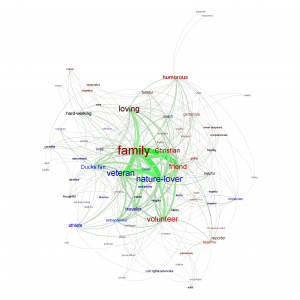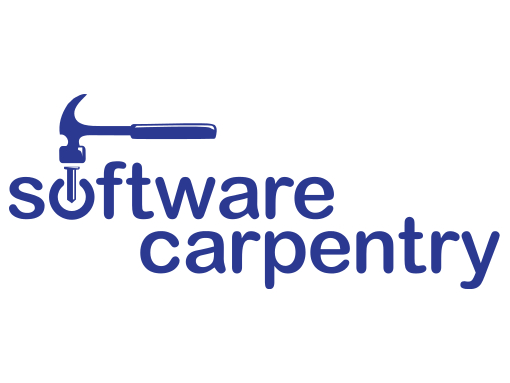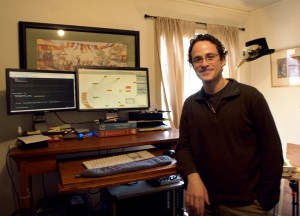Jacob Levernier:
PhD student, Department of Psychology
I am a fourth-year doctoral student in Psychology. My research is on understanding the moral sensibilities of different types of people and their communities, and my work often sits at the intersection of Psychology, applied Statistics, moral Philosophy, and Computer Science. I do a lot of web scraping and other types of data processing to turn pieces of public records (e.g., obituaries) into usable data for research, and am interested in the extent to which how people actually think about morality and privacy (especially in relation to data that they generate) can inform discourse on policy-making.
I’m especially interested in data ethics and data management-how people think about data privacy and surveillance, what policies are ethical to apply when dealing with data (from survey answers to email logs to social media archives), and how best to store data to encourage future ethical use.
Recent Research:
In collaboration with Mark Alfano and Andrew Higgins, some of the work in which I’m currently involved extracts communities’ values out of the obituaries that they publish. It’s interesting to note, for example, that in the 170 obituaries published in The Eugene Register-Guard in November/December 2013, almost one in 10 noted that the deceased was a Ducks fan. Given that most obituaries are brief (and may have word limits), this suggests to me that being a sports fan in Eugene has something to do with signaling membership in a larger group ΓÇö for example, that the deceased was invested in the well-being or cohesion of the Eugene community.
Zagzebski (1996), a philosopher specializing in virtue theory, proposed that “one way to express the depth required for a trait to be a virtue or a vice is to think of it as a quality we would ascribe to a person if asked to describe her after her death.” We’re exploring that idea in this research. The project sits at the intersection of Psychology and Philsophy, and is enabled on a large scale (our current dataset is over 13,000 obituaries) by new media.

“In the 170 obituaries published in The Eugene Register-Guard in November/December 2013, almost one in 10 noted that the deceased was a Ducks fan.”
 Regarding the importance of new media studies:
Regarding the importance of new media studies:
O’Neil and Schutt (2013) popularized the term “datafication” to capture the trend of seeing and gathering data where before it would have been infeasible or uninteresting. Fitbits, for example, “datafy” individuals’ health decisions, from activity levels to food intake.
In 2014, Facebook introduced a feature in their mobile app that would remotely activate users’ microphones at various times to “identify TV and music” that the user might be enjoying. Where before there would have been no or only very limited data on these topics (before, one might record one’s food choices in a daily journal, or perhaps pay an assistant to watch one throughout the day and make records), there is now persistent data, which often enable incidental usage (although Facebook stated that it “can’t identify background noise or conversation,” it would not be unreasonable to expect that conversations could be recorded and stored with such an app feature).

“Understanding and maintaining literacy in the advantages and disadvantages of data storage and usage decisions is complex and requires a creativity that likely is best engendered by cross-disciplinary study, in which historical and philosophical perspectives meet technical ones.”
This is the context in which I see the study of new media, and where I see their relation to culture: from a research perspective, new media enable new types of inquiry on large scales, both of data quantity and of time; however, they also bring new ethical issues, with which legislation has not yet been able to begin to catch up. In my mind, researchers, as the curators and stewards of these data, carry a moral responsibility to understand these issues and act with them in mind. Understanding and maintaining literacy in the advantages and disadvantages of data storage and usage decisions is complex and requires a creativity that likely is best engendered by cross-disciplinary study, in which historical and philosophical perspectives meet technical ones.
The New Media and Culture Certificate is valuable, in my mind, because it is an interdisciplinary program that focuses both on technical skill and critical commentary. As a student of Psychology, I feel that my research especially, and my consuming habits as a user incidentally, have benefitted from the insight of disciplines such as Journalism and the Digital Humanities. Working in the NMCC-affiliated Digital Scholarship Center with graduate students from these and related disciplines has allowed me to more critically interrogate my own methods from a broader perspective.
Given how linked they are to both high-technology and Digital Humanities, new media are also explicitly the meeting-ground of scholarship of the past and technology of the present and future. Before I learned that databases are a field of study, I developed a fascination with medieval mnemonic devices. Until the Protestant Reformation, students of means were routinely taught, for example, to construct mental houses through which they could walk, placing imagined objects that would symbolize things to remember.
In this approach, recalling the summaries of Bible chapters (many students at the time were monastics), lessons from the Trivium or Quadrivium, or whatever else, involved taking a mental walk back through the relevant part of one’s memory palace. This woodcut (fig.1) from the sixteenth century includes mental cues for the summaries of chapters seven through 12 in the Bible’s Gospel of Luke (who is traditionally symbolized by an Ox).
Current Reading/Resource Recommendations:
 There’s a growing movement in the sciences and Digital Humanities to improve code literacy among both researchers and consumers. The Mozilla Foundation’s Software Carpentry, for which I’m a volunteer instructor, offers software and data “bootcamps” for providing researchers with crash-courses in scientific programming and data management; all of the lesson materials are posted freely online, and are a useful resource.
There’s a growing movement in the sciences and Digital Humanities to improve code literacy among both researchers and consumers. The Mozilla Foundation’s Software Carpentry, for which I’m a volunteer instructor, offers software and data “bootcamps” for providing researchers with crash-courses in scientific programming and data management; all of the lesson materials are posted freely online, and are a useful resource.
 Derren Brown’s Tricks of the Mind: Part III: Memory is the single best introduction to image-based mnemonics (memory devices) that I’ve found. Brown’s explanations are approachable and entertaining, as well as based in practice: Brown is a psychological illusionist in the UK, and applies these techniques regularly.
Derren Brown’s Tricks of the Mind: Part III: Memory is the single best introduction to image-based mnemonics (memory devices) that I’ve found. Brown’s explanations are approachable and entertaining, as well as based in practice: Brown is a psychological illusionist in the UK, and applies these techniques regularly.
 Ethan McCallum’s (2012) Bad Data Handbook and Rachel Schutt and Cathy O’Neil’s Doing Data Science (2013) are both very approachable collections of real-world examples in which the use of digital data has met with logistical or ethical issues; Schutt and O’Neil’s book was written after the authors taught a course on the topic, and reflects methodological and theoretical questions that students new to the topic raised.
Ethan McCallum’s (2012) Bad Data Handbook and Rachel Schutt and Cathy O’Neil’s Doing Data Science (2013) are both very approachable collections of real-world examples in which the use of digital data has met with logistical or ethical issues; Schutt and O’Neil’s book was written after the authors taught a course on the topic, and reflects methodological and theoretical questions that students new to the topic raised.
 I’m also a fan of the once-weekly podcast TechSNAP (“Systems, Network, and Administration Podcast”), available for free online. Although the podcast’s intended audience is Systems Administrators (i.e., IT professionals who manage servers), much of the content comprises explaining data breaches in the news and exploring how they might have been avoided. Listening to shows like TechSNAP is a simple way to stay up-to-date on new developments in fields that are directly relevant to Digital Humanities, “data science,” and reproducible research.
I’m also a fan of the once-weekly podcast TechSNAP (“Systems, Network, and Administration Podcast”), available for free online. Although the podcast’s intended audience is Systems Administrators (i.e., IT professionals who manage servers), much of the content comprises explaining data breaches in the news and exploring how they might have been avoided. Listening to shows like TechSNAP is a simple way to stay up-to-date on new developments in fields that are directly relevant to Digital Humanities, “data science,” and reproducible research.
What’s on your shelf? Interested in submitting a Shelfie? Contact us!


